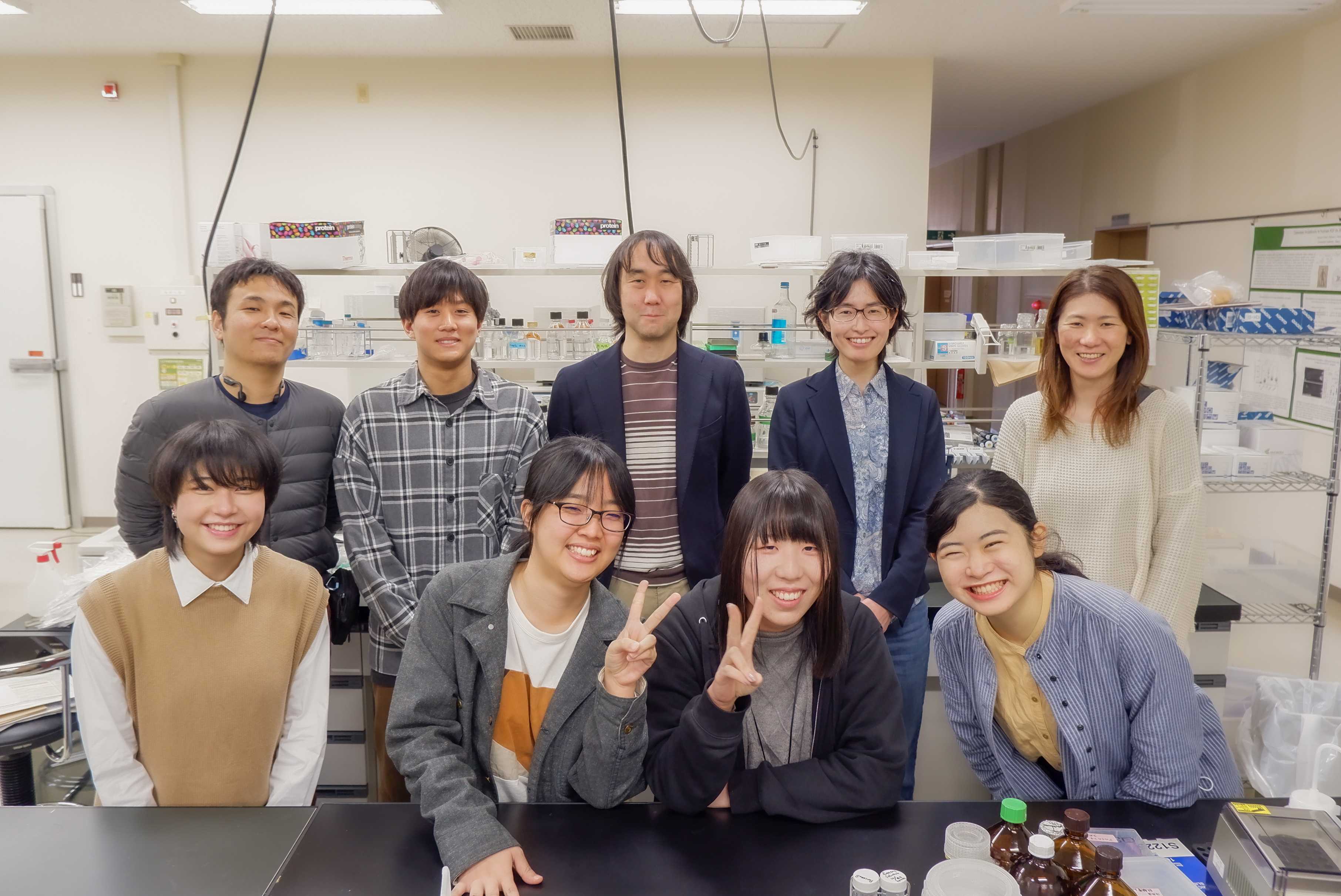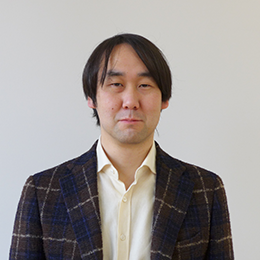Lab members

Shinsuke Niwa, Associate Professor
Message(Sorry, it's written in Japanese)CV(under construction)
My profile in Researchmap
e-mail: shinsuke.niwa.c8@tohoku.ac.jp

Dr. Niwa obtained his PhD in Dr. Nobutaka Hirokawa's lab at the University of Tokyo School of Medicine,
where he analyzed axonal transport mechanisms and identified several new kinesin superfamily proteins. He then pursued post-doctoral research
in Dr. Kang Shen's lab at Stanford University, investigating the molecular mechanisms of axonal transport, especially involvement of motor proteins,
using the model organism Caenorhabditis elegans.
In 2015, he joined the Frontier Research Institute for Interdisciplinary Sciences (FRIS) at Tohoku University,
and in 2019, he was promoted to the position of tenured Associate Professor.
His research lab focuses on elucidating the molecular mechanisms of axonal transport by combining molecular genetics and single molecule biophysics.
Dr. Niwa's group has made significant contributions to our understanding of how both decreased and increased axonal transport can lead to neurological diseases such as hereditary spastic paraplegia and ALS.
Dr.Niwa's publication list is here.
Outside of his research, Dr. Niwa enjoys fishing in the Tohoku area.
Recent Publications from our lab
1.Obinata and Watanabe et al.(2025) SLC-25A46 Regulates Mitochondrial Fusion through FZO-1/Mitofusin and is Essential for Maintaining Neuronal Morphology.
2. Kita et al.(2025) Modular photostable fluorescent DNA blocks dissect the effects of pathogenic mutant kinesin on collective transport.
3. Kita et al.(2024) Biased movement of monomeric kinesin-3 KLP-6 explained by a symmetric Brownian ratchet model.
4. Niwa and Furusaki et al.(2024)The Chromokinesin Kid forms a dimer, moves processively along microtubules and transports double-strand DNA.
5. Iguchi et al.(2024) Characterizing Human KIF1Bß Motor Activity by Single-Molecule Motility Assays and Caenorhabditis elegans Genetics.
6. Chiba & Niwa (2024) Autoinhibition and activation of kinesin-1 and their involvement in amyotrophic lateral sclerosis.
7. Kita et al.(2024) Comparative analysis of two Caenorhabditis elegans kinesins KLP-6 and UNC-104 reveals common and distinct activation mechanisms in kinesin-3
8. Kita et al.(2023) Modeling the motion of disease-associated KIF1A heterodimers.
9. Higashida & Niwa (2023) Dynein intermediate chains DYCI-1 and WDR-60 have specific functions in Caenorhabditis elegans.
10. Anazawa and Kita et al.(2023) De novo mutations in KIF1A associated neuronal disorder (KAND) dominant negatively inhibit axonal transport of synaptic vesicle precursors.
11. Nakano, Chiba and Niwa (2022) An ALS-associated KIF5A forms oligomers and aggregates and induces toxicity in neurons.
12. Chiba et al.(2019) Disease-associated mutations hyperactivate KIF1A motility and anterograde axonal transport of synaptic vesicle precursors.
